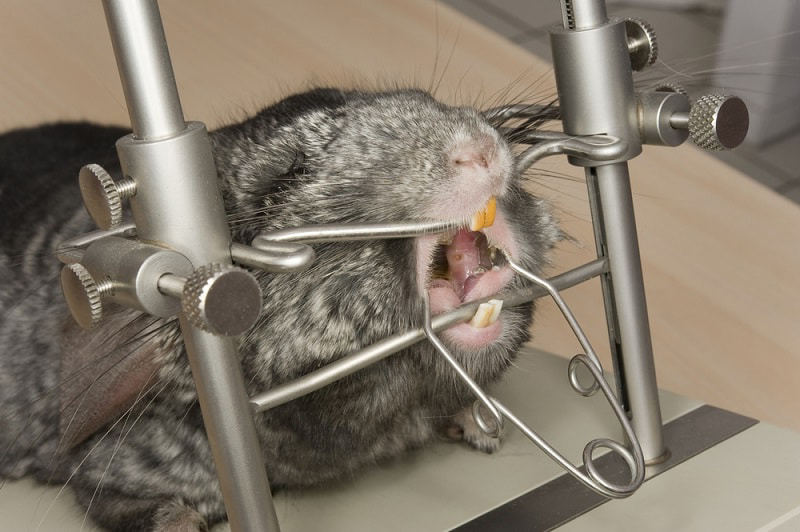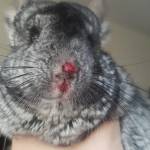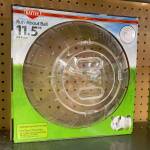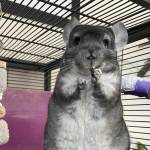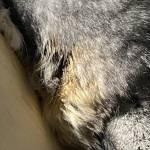Chinchillas, those diminutive rodents of remarkable fluffiness, have earned their reputation for vivaciousness and verve. Endowed with boundless energy, these playful creatures necessitate a carefully curated and nutritionally balanced diet, along with meticulous dental maintenance, to ensure optimal well-being. It is worth noting that chinchillas possess teeth that grow continuously, mandating consistent chewing to avoid the potential onset of dental complications. In the subsequent sections of this article, we shall delve into the intricacies of chinchilla dental health with minute precision. Our discourse will encompass a comprehensive elucidation of the distinctive features of rodent teeth, elucidate the most prevalent dental issues that afflict chinchillas, elucidate preventive measures, and examine the spectrum of treatment options available.
Characteristics of Rodent Teeth
The study of the features that define rodent teeth is an engaging topic worthy of scrutiny. Among rodents, such as the beloved chinchilla, it is fascinating to note that their teeth undergo continuous growth throughout their lives. The incisors, a prominent and conspicuous feature of rodent dentition, serve a multiplicity of purposes, such as gnawing on food, chewing, and fashioning elaborate nests. Chinchillas, in particular, have an impressive four incisors, arranged as a pair on the upper jaw and another duo on the lower jaw. Beyond the incisors, premolars and molars, housed in the rear of the oral cavity, are pivotal for the milling and pulverization of their dietary intake. Intriguingly, these back teeth, in contrast to their prominent incisors, remain concealed from view.
Another salient aspect of chinchilla dentition is their unique tooth structure, typifying all rodents. An enamel coating on the front surface, accompanied by dentin on the posterior aspect, characterizes their teeth. Enamel, the hardest substance in the entire body, provides an essential shield against premature wear and tear. Conversely, the softer dentin region houses the intricate system of nerves and blood vessels that supply vital nutrients to the tooth structure.
Dental Problems in Chinchillas
It is a well-established fact that chinchillas are highly susceptible to an array of dental afflictions, which, if not dealt with expediently, could result in dire health consequences. To provide a deeper insight into this matter, we shall commence by delving into some of the more prevalent dental maladies that chinchillas are prone to.
– Chinchilla Malocclusion
A ubiquitous dental issue that afflicts chinchillas is none other than the dreaded malocclusion, which manifests when their teeth are misaligned. This malady, if left unaddressed, can trigger an aberrant growth pattern, resulting in an irregular contour, uneven wear, and jagged borders that inflict harm upon the delicate oral tissues. The overgrowth of teeth, in turn, impedes the process of mastication, and could precipitate severe malnutrition and detrimental weight loss. It is imperative that chinchilla owners remain vigilant and attuned to the subtlest signs of malocclusion, as timely intervention is paramount in staving off the deleterious effects of this ailment.
— Possible Dental Surgeries to Correct Malocclusion
In the event that your cherished chinchilla is afflicted with malocclusion, it is highly plausible that your veterinarian may proffer the prospect of a dental surgical intervention to rectify the issue. Among the assortment of surgical modalities available, two prominent options stand out as the go-to procedures for chinchillas:
- Teeth trimming: Firstly, we have teeth trimming, a technique whereby the intrepid veterinarian employs an array of specialized dental instruments to prune the overzealous growth of chinchilla teeth to a more reasonable length.
- Tooth extraction: Alternatively, there is the option of tooth extraction, which is invoked when the teeth have exceeded the limits of what can be achieved through mere trimming. Under general anesthesia, the veterinarian adroitly removes the offending teeth with the utmost precision and care.
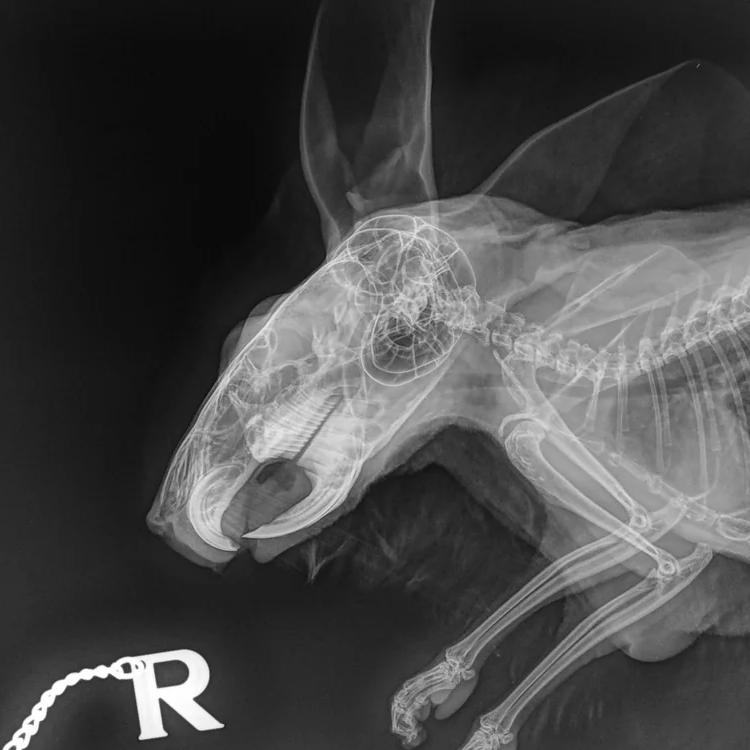
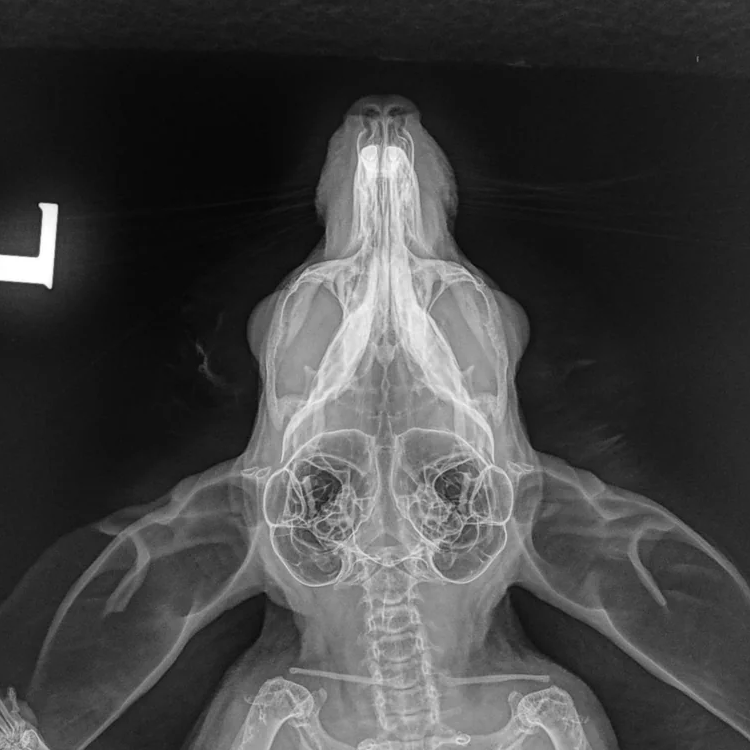
– Calcium Deficiency
In the realm of indispensable minerals, calcium reigns supreme in its ability to bestow optimal dental, skeletal, and overall physical robustness upon chinchillas. Inadequate intake of calcium-rich foods can trigger an unwelcome health condition known as osteoporosis, a malevolent scourge that undermines the integrity of the teeth and bones. This insidious disorder has the capacity to render the teeth fragile and susceptible to fracturing, resulting in excruciating discomfort, inflammation, and rampant infection.
– Insufficient Tooth Wear
In the grand scheme of chinchilla dental maintenance, continuous wear of the teeth through diligent chewing is the key to preventing a litany of dental disasters, such as overgrowth and a litany of related problems. Conversely, insufficient tooth wear can lead to unmitigated teeth growth, thusly setting the stage for a host of health issues, including weight loss and malocclusion. To counteract this, one can furnish their beloved chinchilla with an assortment of chew toys and hay, which can facilitate the natural wearing down of the teeth, thusly averting disaster.
Preventing Dental Problems in Chinchillas
It is no secret that preventing dental problems in chinchillas is an absolute cakewalk compared to treating them. Therefore, it is crucial to be armed with knowledge and prevention tactics to keep your chinchilla’s teeth in tip-top shape. Without further ado, here are some time-honored ways to prevent dental problems in your furry friend:
- Deprive sugary or starchy treats: Avoid providing your chinchilla with sugary or starchy treats such as processed snacks or fruits, as they can stick to their teeth and cultivate bacterial growth, causing dental problems. It is recommended to avoid or limit these treats to occasional indulgence.
- Provide constant clean water: To maintain good dental health, chinchillas require a continuous supply of fresh and clean water. Dehydration can lead to dry mouth, which can, in turn, lead to bacterial growth on the teeth.
- Watch out for dental problems: Keep an eye out for signs of dental problems such as appetite loss, weight loss, drooling, or difficulty chewing. It’s best to take your chinchilla to the vet for a check-up if you notice any of these signs.
To summarize, chinchilla dental health is of paramount importance for their general health and well-being. Due to their continuously growing teeth, regular chewing is necessary to prevent dental issues such as malocclusion, calcium deficiency, and insufficient tooth wear. Keeping your chinchilla’s teeth healthy involves regular dental check-ups, maintaining a balanced diet, providing plenty of chew toys, and ensuring a hygienic environment. By adhering to these preventive measures, you can help maintain your chinchilla’s oral health and prevent the onset of severe dental issues.
In conclusion, it is of utmost importance to provide your chinchilla with proper dental care to ensure their well-being. Dental problems in these lively creatures can be agonizing and even lethal if not addressed promptly. Being knowledgeable about the traits of rodent teeth, common dental complications, and prevention methods can help keep your chinchilla’s teeth in optimal shape. Simple yet effective measures such as regular dental check-ups, a balanced diet, offering chew toys, and upholding a sanitary environment can go a long way in preventing dental issues in chinchillas. Don’t underestimate the significance of dental care for your furry friend!

